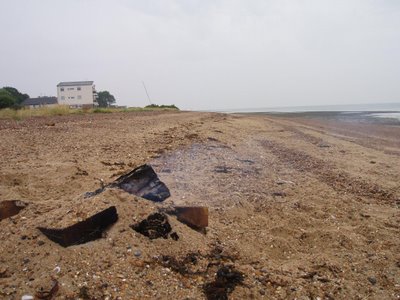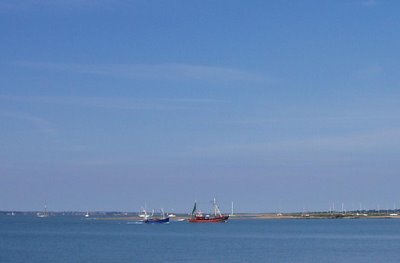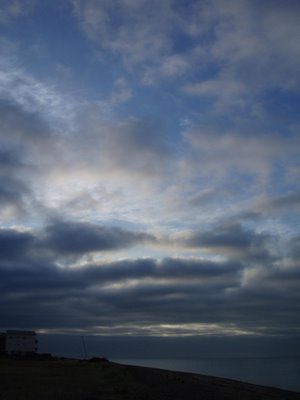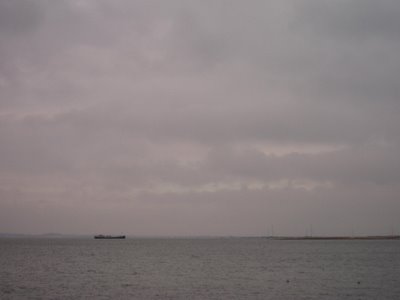In our gospel reading today, we have the transfiguration of Jesus on the mountain. Jesus and three disciples, Peter James and John, ascend the mountain, rising up into the heavens both literally and metaphorically. And Jesus is transformed in their sight, so that his glory is revealed. He is joined by Moses and Elijah, representing the law and the prophets, whom Jesus is unifying in his own person. And you are free to imagine the heavenly choirs of angels singing, for this is a foretaste of the glory of the resurrection: Jesus is revealed in his true nature, the light shining in the darkness.
Today – paradoxically – I would like to begin by saying something about the darkness – for being exposed to the blinding light of Christ can be painful – imagine waking up, opening the curtains and having the sun shine straight in your face – if you’re not expecting it it dazzles, it hurts the eyes. Or even walking along the beach recently, in the middle of a summers day – brightness hurts the eyes. It’s why we use sunglasses. What I’m trying to get at is something which has been understood within the Christian tradition from the very beginning – that sometimes the light hurts, and sometimes people turn away from the light.
So now it is time for the Rector to come out – this has been growing on me for quite some time as my experience compels me to consider it – amd now I’m going public – I believe in hell! But this does need a little unpacking – two ways in particular:
The first way that I would like to unpack a little relates to our present choices, for the language of hell can rapidly become a spiritual burden. Sin is not the sun around which the Christian system circles, indeed, for the Christian, sin is always fighting a losing battle. More than that, a focus on sin tends to lead to self-obsession, and we presume too much responsibility onto our own shoulders – Jesus said ‘come to me all you who are weary and heavy laden, for my yoke is easy and my burden is light’. We never earn our way to salvation – nothing undermines the truth of God’s grace – but grace enters in when we recognise the truth that Christ is Lord of heaven and earth – when we see him transfigured, as both human and divine – it is the light that sets us free, to concentrate on the promise of the kingdom, of life in all its fullness.
The second thing is that an exclusive concern with ‘eternal consequences’ is wrong, that is, thinking of hell as something which only kicks in after we die. Hell is part of life in the present as well as life to come – just as the kingdom is something that is breaking in upon us at this very moment, so too is hell, and some people endure hell in this life – I’m sure you can all think of examples. And it is this very present-day sense which I think Jesus was concerned with, as often as not. Let us not get too distracted with the literal language of fiery furnaces and torments etc. The Inuit have an understanding of hell that sees it as being incredibly cold; whereas middle eastern cultures saw it as incredibly hot – because in each case what was associated with hell was what destroyed life. It is not the imagery itself that is crucial so much as the underlying reality – that what we do matters, that it is of eternal significance – and that the consequences of a wrong life are indeed terrifying and horrible. Jesus uses the language of gehenna – the rubbish tip outside of Jerusalem – also place of child sacrifice – represents all that is opposite to God, opposite to kingdom.
The thing is that this language of hell offends against some modern sensibilities – the idea that we are all victims, so really nobody deserves to go to hell – in part that’s sentimental nonsense, in part it is simply a biblical insight – Ps 130 “If you, LORD, were to note what is done amiss, O Lord, who could stand?” – we cannot judge where people are, but it is possible to turn away from the light, to refuse the truth – and the consequences of that are painful, in this life and in the next. That is what I understand hell to be – and I don’t believe it is possible to believe in the kingdom without also believing in gehenna
For this language does describe the concrete outcomes in our lives – revelation 20.12: we will be ‘judged according to our deeds’. Again, this is not about earning salvation – the point is that salvation is something present and real and shareable within this life – it is not just pie in the sky when we die – it is the bearing of fruit that will last. The point about hell is that hell too is present and real and shareable in this life – and in the life to come – the righteous works of the faithful, which Revelation refers to, are the working out in them of the light of Christ, in whose image we are made; in other words, the process of sanctification – when we are transfigured, when we become the creatures of light that is God’s intention for us.
Because that is the positive side – today talked about the darkness, but only because of the light is that revealed – God is light and in him there is no darkness at all – the disciples have the windows opened and they see the glory of God revealed in the face of a human being. They are able to see this glory because they have fallen in love with Jesus. That is what makes them disciples – they love the Lord, they have responded to his call, their hearts are on fire with love for him. They see the truth, and they accept the truth.
That is our calling too. For the miracle of the transfiguration isn’t just that it reveals who Jesus is. The transfiguration is something which happens in us. We are the ones who are transfigured – if we see the face of Christ revealed then the face of Christ within our deepest selves wakes up and seeks expression too. If we accept the pain of turning towards the light – if we allow God’s searching light to reach in to our innermost hearts and unearth all the things which disfigure and wound our souls – then God will work with us – the grace of God will go before us and help us share in his glory. For remember what St Paul writes – the creation waits with eager longing for the glorious liberty of the children of God. That’s us. That’s you and me here and now. Glory is what we were made for, Glory is what we are called to, Glory is what we most want to be.
We do still have a choice, a freedom to choose between sleep and wakefulness. The world would like us to sleep – to continue to spend our days working all the hours God sends, to raise the money to pay the bills which keep the wheels in motion. To spend our time consuming – and that need not involve too much time spent in the shops. To not pay any attention to what comes for free in life. To pay attention to our wants and desires rather than our needs. That is to sleepwalk through this life, to not notice the things that are truly important, to fall into a rut of comfortable habits, safe from the bracing fresh air of reality. To stay within our tents. To not see the light.
This is not the life that God has planned for us. For God sent his Son in order that we might see the light, that we might start to share in the glory that is promised to us on a mountainside, on a hill far away. Then – and only then – we might start to take responsibility for this glorious world we have inherited, and work to make God’s glory manifest in the world. If we let God do his work, if we don’t try and capture it in forms that we feel comfortable with, if we hold fast to the light that has been revealed to us – then we shall see God, and we will truly be his children.






